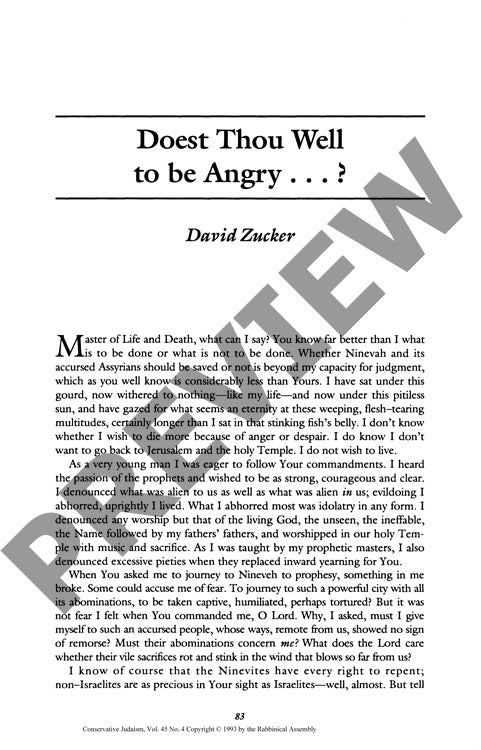Doest Thou Well to Be Angry
Couldn't load pickup availability
This literary analysis presents a contemporary reimagining of the biblical narrative of Jonah through a first-person monologue that explores themes of divine authority, prophetic reluctance, and spiritual crisis. The methodology employs a dramatic monologue format, allowing the prophet Jonah to directly address God in an extended meditation on his missionary experience to Nineveh. The study examines Jonah's psychological and theological struggles, including his resistance to prophesying to non-Israelites, his feelings of resentment toward divine omniscience, and his ultimate confrontation with God's universal compassion. Key findings reveal the protagonist's internal conflict between religious chauvinism and acknowledgment of divine justice, his struggle with the burden of prophetic calling, and his ultimate choice of silence as a form of resistance. The analysis demonstrates how the biblical narrative can be reinterpreted to illuminate contemporary questions about religious particularism, divine justice, and the psychological toll of spiritual vocation. The work concludes that Jonah's journey represents not conversion but rather a profound spiritual impasse, suggesting that prophetic calling may involve irreconcilable tensions between human understanding and divine purpose.

More Information
-
Physical Description
-
Publication Information
Published 1993
ISBN
-
Publication Credits
David Zucker

